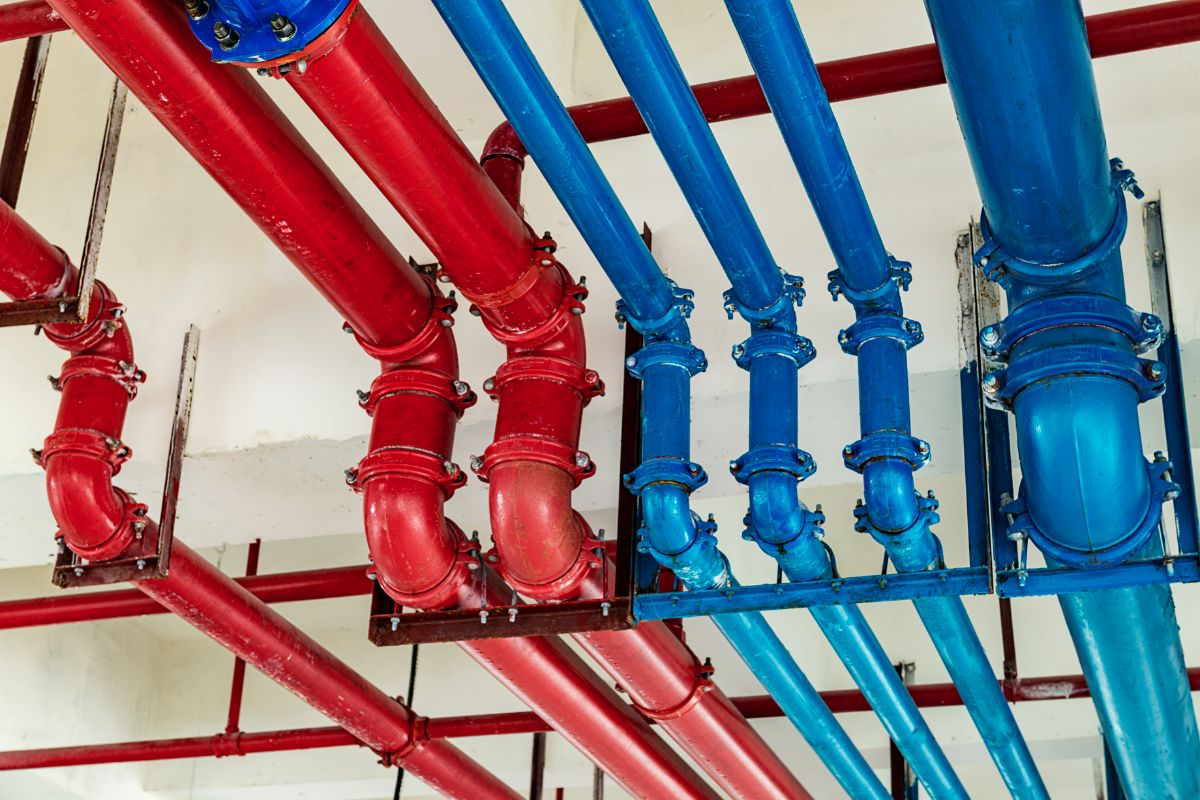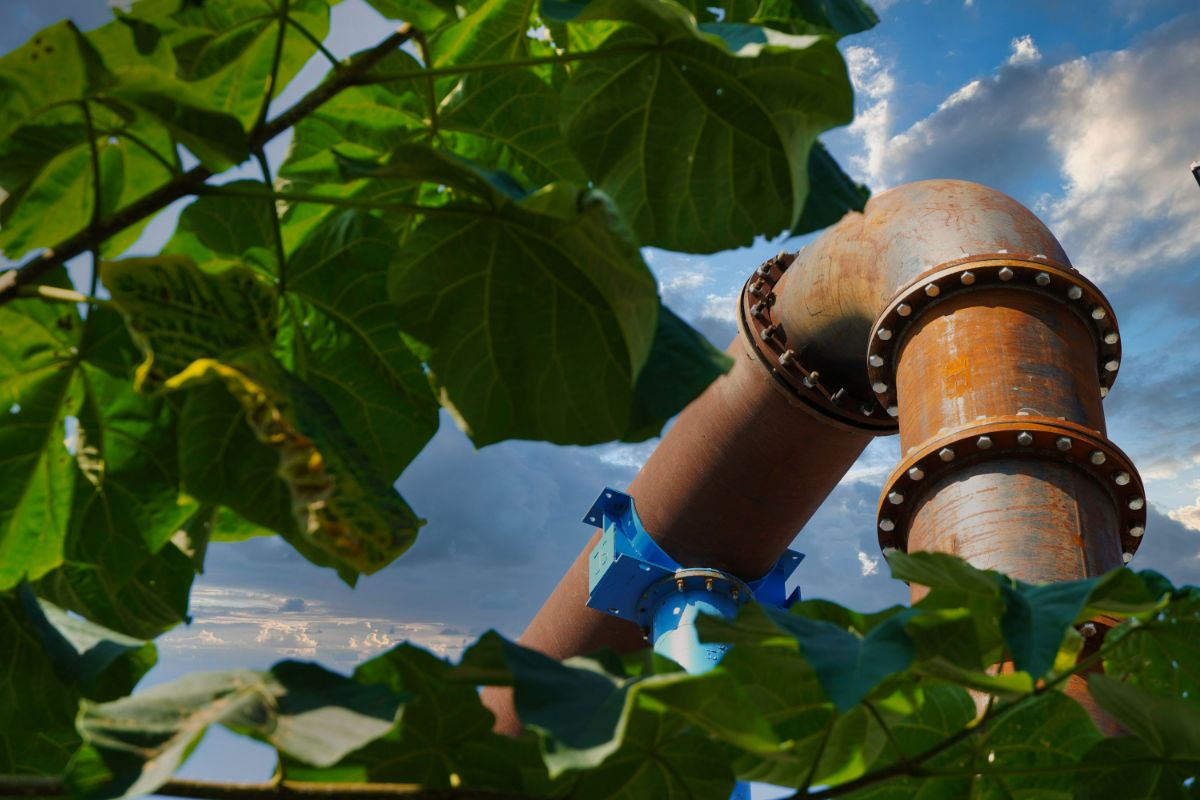
The Impact of Hard Water on Pipes and How to Minimize Damage
What are the impacts of hard water on pipes?
- Clogging
- Damage to appliances
- Stained fixtures
- Reduced water quality
- Increase water consumption
Overview
- Packed with minerals, hard water can clog pipes, reduce water flow, and even damage appliances.
- One solution to hard water is a water softener. It works by capturing and removing calcium and magnesium ions, the minerals responsible for hard water’s negative effects on your plumbing.
- Understanding the effects of hard water on pipes empowers you to take action and safeguard your plumbing system, saving you money and promoting environmental sustainability.
Hard water, characterized by high mineral content, poses significant challenges to your plumbing system. These mineral deposits can lead to clogging, reduced water flow, and damage to appliances. Understanding these effects explains the importance of investing in high-quality water pipes capable of withstanding the corrosive nature of hard water.
In this article, we will focus on the impact of hard water on pipes and how to minimize the damage it may cause.
Clogging
The buildup of minerals like calcium and magnesium caused by hard water can cause clogging in the water pipes. When it flows through the pipes, these minerals can accumulate over time, forming a crusty deposit called scale. This scale can restrict water flow, decrease pipe diameter, and eventually lead to clogging.
To minimize this damage, several approaches can be taken. One method is installing a water softener, which works by removing the calcium and magnesium ions from the water through a process called ion exchange. This prevents scale formation and helps clean the pipes.
Another preventive measure is using water filtration systems or descaling agents, which can reduce the mineral content in the water before it enters the pipes. Ensuring proper insulation of pipes in colder climates can also prevent scale formation by maintaining consistent water temperatures.
Damage to Appliances

The primary culprit in damaging the appliance is limescale, which forms when the minerals in hard water react with heat.
Limescale deposits act as insulators, forcing appliances such as water heaters, dishwashers, and washing machines to work harder. This results in increased energy consumption and potentially shortened lifespans.
Regular maintenance, such as flushing the water heater and cleaning the appliance filter, can help prevent this buildup. Furthermore, using appliances that are specifically designed to handle hard water, or installing protective coatings on pipes and fixtures, can reduce the impact of mineral deposits.
Stained Fixtures
Imagine you’ve just moved into a new house with shiny fixtures in the bathroom. At first, they sparkle, but over time, you notice stains forming on them. When hard water flows through your pipes and comes into contact with your fixtures like the showerhead, it leaves mineral deposits behind, creating those stains.
Regular cleaning is essential. You can use a mild acid cleanser or a mixture of vinegar and water to dissolve the mineral deposits. Use equal parts vinegar and water in a spray bottle.
Spray the cleanser onto the affected area, ensuring they are thoroughly coated. Allow the solution to sit for a few minutes and gently scrub it using a sponge. Once finished, rinse with water to remove any vinegar residue.
Reduced Water Quality

While hard water isn’t a direct health concern, the reduced water quality contains minerals that can react with soap, making it difficult to lather and rinse off. This can leave a filmy residue on skin and hair, leading to dryness, itchiness, and irritation.
Since it disrupts the skin’s natural barrier function, it can also worsen eczema symptoms. To minimize the damage and safeguard your pipe’s health, schedule a regular plumbing inspection. This can help identify and address contaminants buildup before it causes significant problems.
Want to know if your tap water is hard? Here’s a quick and easy test you can do with household items:
- Fill the bottle with about one-third of the water from your tap.
- Add 10-12 drops of liquid soap to the bottle.
- Close the lid tightly and shake vigorously for a few seconds.
- If there are very few bubbles, or if the bubbles disappear quickly and the water appears cloudy, your water is likely hard.
This is a simple test and may not be perfectly accurate. For a more precise measurement, consider purchasing a home water hardness test kit.
Increase Water Consumption
The mineral deposits left by hard water can reduce the effective flow of water. These restrictions may cause individuals to run taps and fixtures for longer duration to achieve the desired water volume, unintentionally raising water consumption.
Reducing water consumption has broader environmental implications, conserving water resources and lowering energy usage. By addressing the impact of hard water on pipes through water-softening solutions, you can contribute to water conservation efforts, and promote both personal and environmental well-being.
Key Takeaway
Hard water can cause mineral buildup, leading to clogs and reduced lifespan of the plumbing system. Knowing these impacts of hard water on pipes and implementing strategies to minimize the damage is important, preserving your plumbing system, reducing costs, improving water quality, and promoting environmental sustainability.
At Supreme Steel Pipe Corporation, we understand the importance of quality and affordability in water pipe solutions. We offer a wide range of durable and reliable water pipes perfect for various plumbing projects in the Philippines. Don’t settle for less. Contact us today and experience the difference!


